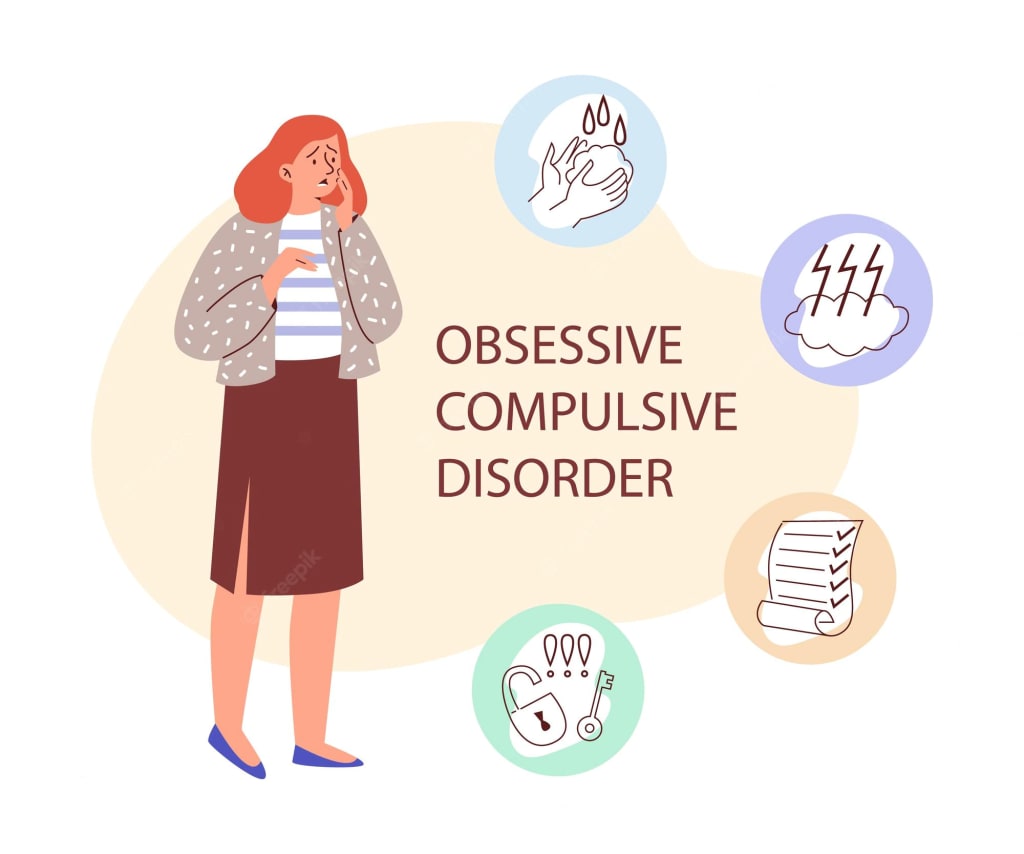Examination of the Relationship between OCD and Depression
Examination of the Relationship between OCD and Depression

Obsessive-Compulsive Disorder (OCD) and depression are two mental health disorders that often coexist and can significantly impact a person's life. This article explores the relationship between OCD and depression, shedding light on how they interact and the importance of seeking professional help, such as an OCD psychologist, for effective treatment.
OCD is a chronic mental health condition characterized by intrusive thoughts (obsessions) and repetitive behaviors (compulsions) that individuals feel driven to perform. Common obsessions include fears of contamination, doubts, and a need for symmetry, while compulsions manifest as repetitive actions like excessive cleaning, checking, or counting. OCD can be highly distressing and time-consuming, interfering with daily activities and overall quality of life.
Depression, on the other hand, is a mood disorder that affects a person's thoughts, emotions, and behavior. Symptoms of depression include persistent feelings of sadness, loss of interest or pleasure in activities, changes in appetite or sleep patterns, and low energy levels. Individuals with depression may experience a lack of motivation and difficulty concentrating, which can further exacerbate their OCD symptoms.
The relationship between OCD and depression is complex and bidirectional. Research studies have shown that individuals with OCD are at a higher risk of developing depression compared to the general population. The distress caused by OCD's intrusive thoughts and the burden of performing compulsions can lead to feelings of hopelessness, sadness, and frustration, which are hallmark symptoms of depression. The constant anxiety and fear associated with OCD can also contribute to the development of depressive symptoms over time.
Likewise, individuals with depression may develop symptoms of OCD. The negative thoughts, guilt, and self-criticism that often accompany depression can manifest as obsessive thoughts and compulsive behaviors. For example, a person with depression may develop obsessions related to harming themselves or others and perform rituals to alleviate the anxiety caused by these thoughts. In this case, OCD symptoms arise as a coping mechanism for the distress experienced in depression.
Moreover, the co-occurrence of OCD and depression can worsen the severity of both conditions. When OCD and depression coexist, individuals may experience a more chronic and treatment-resistant form of OCD. Depression can reduce an individual's motivation and energy levels, making it harder for them to engage in exposure and response prevention (ERP) therapy, which is the gold standard treatment for OCD. This delayed or inadequate treatment can perpetuate the vicious cycle between OCD and depression, further impairing the person's well-being.
Given the complex interplay between OCD and depression, it is crucial for individuals experiencing symptoms of either or both disorders to seek professional help. Consulting an OCD psychologist or a mental health professional with expertise in treating OCD is essential for accurate diagnosis and effective treatment planning.
OCD psychologists are specialized in understanding and treating OCD specifically. They have in-depth knowledge of the disorder, its underlying causes, and evidence-based treatment approaches. Working with an OCD psychologist ensures that individuals receive appropriate therapy, such as ERP, which helps them gradually confront their fears and reduce the impact of obsessions and compulsions on their lives. Additionally, an OCD psychologist can address any comorbid depression symptoms and provide support in managing both conditions simultaneously.
Treatment for OCD and depression typically involves a combination of psychotherapy and medication. Cognitive-behavioral therapy (CBT) is highly effective in treating OCD, and it can be adapted to address depressive symptoms as well. Medications, such as selective serotonin reuptake inhibitors (SSRIs), are commonly prescribed for both OCD and depression. A mental health professional, including an OCD psychologist, can determine the most appropriate treatment plan based on the individual's specific needs and circumstances.
In conclusion, OCD and depression often coexist and have a bidirectional relationship. The distress caused by OCD can contribute to the development of depression, while depressive symptoms can manifest as OCD behaviors. The co-occurrence of OCD and depression can worsen the severity of both conditions, underscoring the importance of seeking professional help. Consulting an OCD psychologist or a mental health professional with expertise in OCD is crucial for accurate diagnosis and effective treatment. With the right support and appropriate treatment, individuals can manage their symptoms, improve their quality of life, and regain control over their mental well-being.





Comments
There are no comments for this story
Be the first to respond and start the conversation.